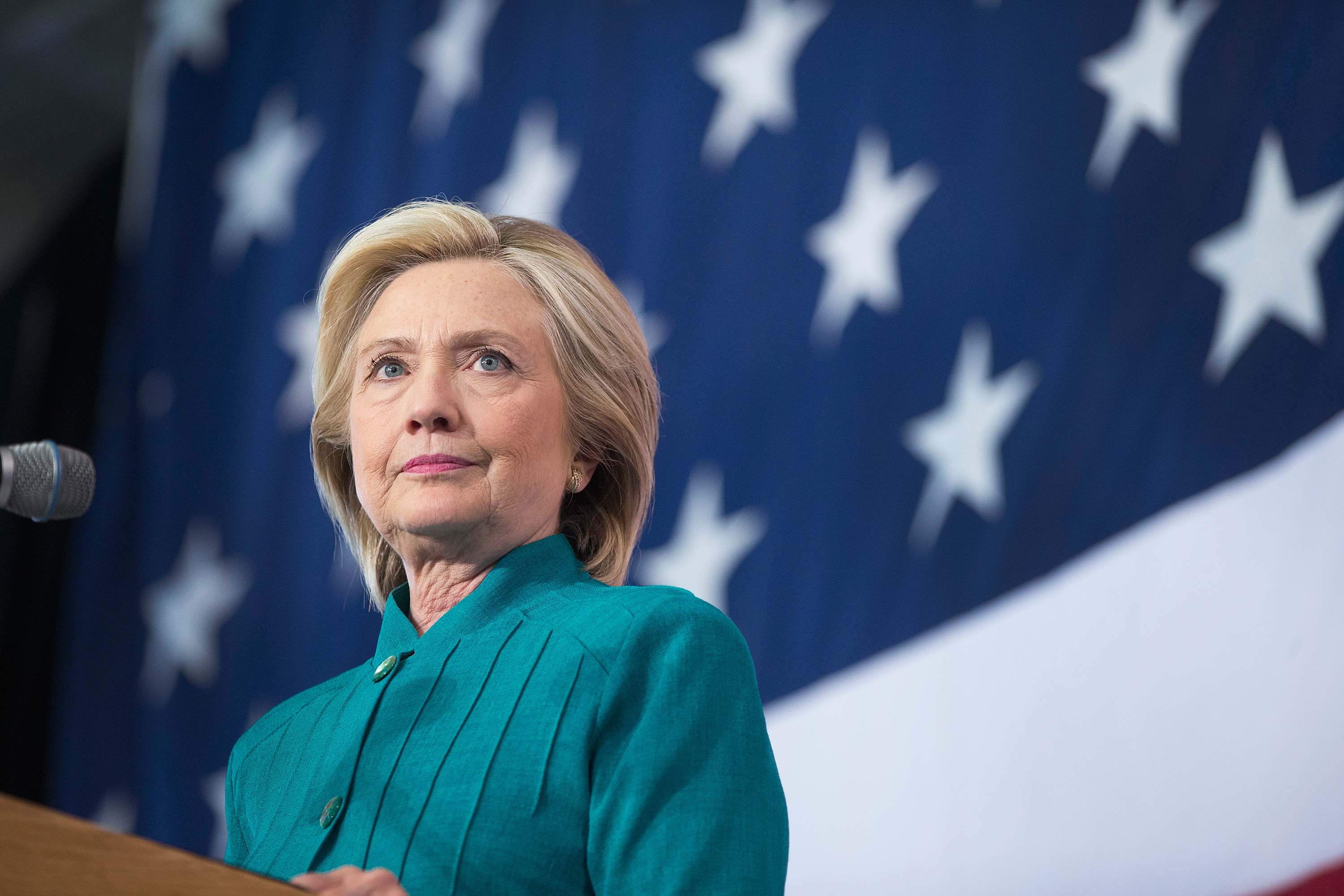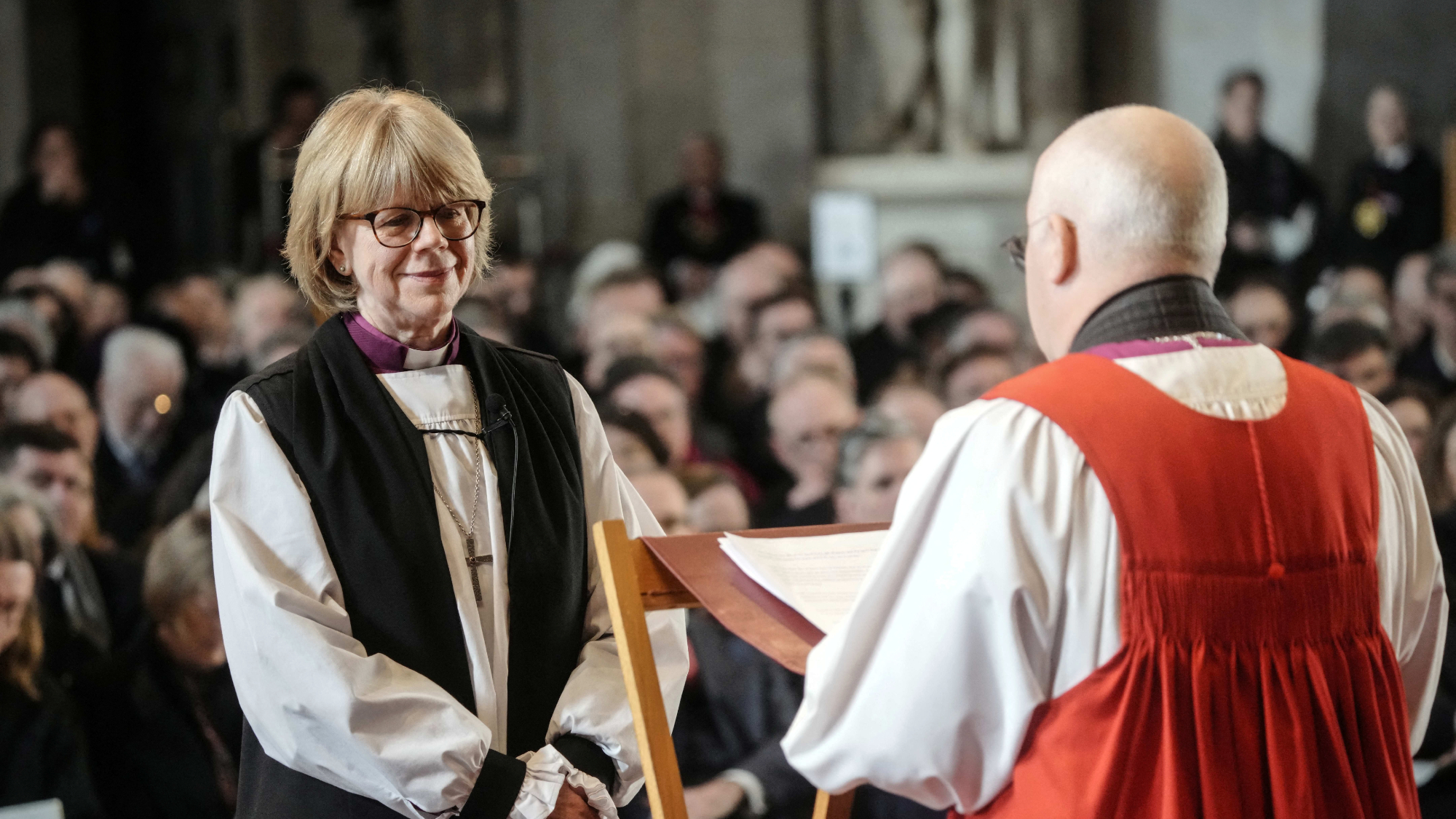How a President Hillary Clinton could help end the death penalty
The Supreme Court isn't close to striking it down. But a new Democratic appointee would make a huge difference.


On the last day of this year's Supreme Court term, the court handed down Glossip v. Gloss, ruling 5-4 that Oklahoma's death penalty protocols were constitutional, despite the significant risk that the state's experimental lethal injection procedures would result in death by torture.
Glossip is likely to be remembered for more than the specific holding of the case, however. In addition to Justice Sonia Sotomayor's dissent taking apart the majority's logic on the narrow issue at stake, Justice Stephen Breyer, joined by Justice Ruth Bader Ginsburg, in a separate dissent concluded: "I believe it highly likely that the death penalty violates the Eighth Amendment." Breyer's dissent is important, leading some to even conclude that the Supreme Court might actually rule that way in the near future. But this probably won't happen unless a Democratic president replaces one of the Republican-appointed justices on the court, which is another reason the Supreme Court will be a top issue in the 2016 presidential race.
A majority of the Supreme Court has never held that the death penalty is categorically unconstitutional — indeed, there have never been more than two justices at any one time who supported this view. In the 1972 case Furman v. Georgia, the Supreme Court suspended executions, but three of the five justices in the majority held that the death penalty would be constitutional if applied fairly. Only two justices — William Brennan and Thurgood Marshall — held that the death penalty was always unconstitutional, a position they held for the rest of their tenures.
The Week
Escape your echo chamber. Get the facts behind the news, plus analysis from multiple perspectives.

Sign up for The Week's Free Newsletters
From our morning news briefing to a weekly Good News Newsletter, get the best of The Week delivered directly to your inbox.
From our morning news briefing to a weekly Good News Newsletter, get the best of The Week delivered directly to your inbox.
Two other justices, Harry Blackmun and John Paul Stevens, wrote opinions shortly before their retirement suggesting that the death penalty might be unconstitutional. But otherwise every justice has supported the compromise the court reached in 1976: The death penalty is constitutional if applied in a more fair and rational manner.
It is possible that Breyer's opinion will be seen as a fraying of this compromise and a crucial step towards a ruling that the death penalty is unconstitutional. But if so, it is likely to be a process that plays out over a fairly long period.
At Slate, Robert J. Smith gives the most optimistic reading of Breyer's dissent from the perspective of death penalty opponents, suggesting that there might be five votes on the current court to abolish the death penalty.
His argument is superficially persuasive. Justice Anthony Kennedy has been the swing vote to hold the death penalty unconstitutional for some offenses and offenders: those with mental disabilities, felons under 18, and people convicted of the sexual assault of children. It's true , Smith acknowledges, that this collectively represents a small fraction of people sentenced to death. But on gay and lesbian rights, Kennedy started out by authoring some modest, incremental opinions — such as those striking down rarely enforced anti-sodomy laws — and proceeded to a landmark opinion creating a national right to same-sex marriage. Particularly with public opinion trending against the death penalty, why wouldn't Kennedy write the death penalty equivalent of Obergefell v. Hodges?
A free daily email with the biggest news stories of the day – and the best features from TheWeek.com
The comparison, though, fails to withstand scrutiny. The crucial difference is that on LBGT rights, Kennedy batted 1.000. He never rejected an important claim that came to a vote on the merits. On the death penalty, conversely, Kennedy has hardly been a consistent friend to abolitionists. He joined, for example, a notorious opinion by former Chief Justice William Rehnquist holding that new evidence of actual innocence did not entitle someone convicted of a capital crime to federal habeas corpus relief. He has voted to uphold the constitutionality of victim impact statements, which lead to harsher punishments; death sentences where the mitigating and aggravating factors found by a jury were equally balanced; and another state's lethal injection protocol.
Admittedly, some of these opinions are two decades old, and Kennedy might have changed his mind about the fundamental constitutionality of the death penalty. (Stevens, after all, was one of the three justices who authored the joint opinion announcing the 1976 compromise.) But Glossip itself provides powerful evidence against this possibility. Among other things, Justice Samuel Alito's majority opinion represents a sort of obscene gesture to death penalty opponents: "If you use legal methods to prevent states from carrying out a particular form of execution, it therefore has the right to carry out less humane ones."
This is nothing less than a justification for torture. It is very hard to imagine someone who opposes the death penalty in principle joining this opinion, which is exactly what Kennedy did.
It is thus vanishingly unlikely that this court will hold the death penalty unconstitutional. The interesting question is what might happen should a justice nominated by a Democrat become the median vote of the court. In a recent paper, the University of Maryland legal scholar Mark Graber suggests that we are about to see a much more polarized Supreme Court that, rather than hewing towards centrist opinions, swings well to the left or right depending on who has the fifth vote.
The death penalty is one area where this may be most evident. Unless popular opinion shifts strongly in favor of the death penalty, Breyer's opinion may very well reflect the default position of Democratic nominees, even the most conservative ones. If President Hillary Clinton can replace one of the Republican nominees on the court, we could ultimately see a decision declaring that the death penalty violates the Eight Amendment's ban on cruel and unusual punishments.
But there's a dark side to the polarized court from the perspective of death penalty opponents. If President Scott Walker or Marco Rubio replaces Justice Ginsburg and/or Breyer, states might aggressively expand the death penalty to encompass homicides committed by minors or the sexual assault of children — and these laws would likely be upheld.
Breyer's dissent does not reflect a court that is going to rule the death penalty unconstitutional in the short term. But it does suggest that it is a medium-term possibility — and that the stakes of future presidential elections are about to get even higher, with control of the median vote of the Supreme Court accruing a greater policy impact than it's ever had.
Scott Lemieux is a professor of political science at the College of Saint Rose in Albany, N.Y., with a focus on the Supreme Court and constitutional law. He is a frequent contributor to the American Prospect and blogs for Lawyers, Guns and Money.
-
 ‘Implementing strengthened provisions help advance aviation safety’
‘Implementing strengthened provisions help advance aviation safety’Instant Opinion Opinion, comment and editorials of the day
-
 How Manchesterism could change the UK
How Manchesterism could change the UKThe Explainer The idea involves shifting a centralized government to more local powers
-
 Church of England instates first woman leader
Church of England instates first woman leaderSpeed Read Sarah Mullally became the 106th Archbishop of Canterbury
